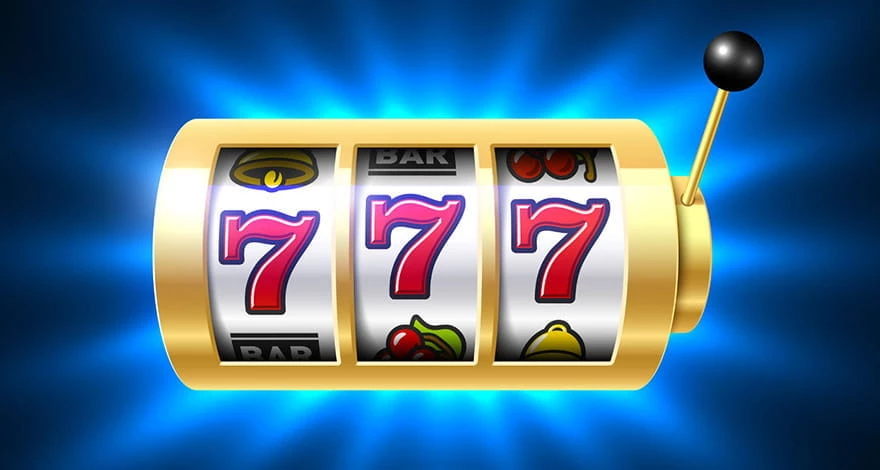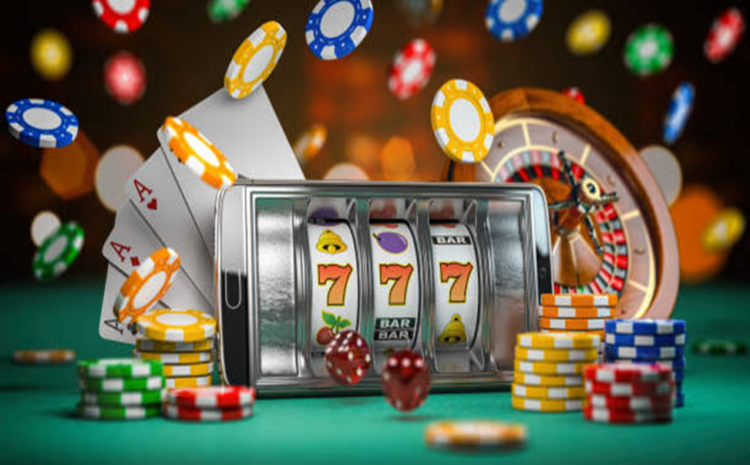The clinking of coins, the exhilarating jingles, and the dazzling lights – stepping into a casino, one is instantly drawn to the hypnotic allure of slot machines. They are a staple in the gambling world, offering a mix of simplicity, excitement, and the promise of fortune. In this section, we will delve into the magnetic appeal of these machines, dispel common myths surrounding slot machine strategies, and set the stage for a comprehensive analysis backed by data and expert insights.
The Popularity and Allure of Slot Machines

Slot machines have carved their niche in the hearts of gamblers through their straightforward mechanics fused with the thrill of chance. Players are not burdened with complex rules or intricate strategies. Instead, they are welcomed with user-friendly interfaces, a variety of themes, and the potential for substantial payouts. Every pull of the lever or press of the button offers a fresh opportunity to strike it rich, making every moment at the slot machine a cocktail of anticipation and excitement.
The prospect of hitting the jackpot is a significant draw. With stories of life-changing wins circulating widely, many are enticed by the possibility of transforming their fortunes with a single lucky spin. This dream, fueled by the occasional ringing of the winning bell echoing through the casino halls, keeps players anchored to their seats, eyes fixed on the spinning reels.
Common Misconceptions about Slot Machine Strategies
One prevailing myth is the belief in patterns – the notion that studying a machine’s cycles can predict future outcomes. However, each spin is governed by Random Number Generators (RNGs), ensuring complete randomness and unpredictability. No amount of analysis can unveil a winning sequence, making each play an isolated event.
Another common misconception is the idea that a machine is “due” for a win after a long dry spell. This fallacy is rooted in the mistaken belief that slot outcomes are dependent on previous results. In reality, every spin is independent, and past results have no bearing on future spins.
Navigating the world of slot machines requires a foundational understanding of their operational mechanics and the terminology that accompanies them. In this section, we will demystify the core components that drive these captivating machines and decode the common jargon, equipping you with the knowledge to engage in informed and strategic gameplay.
How Slot Machines Work

1. Random Number Generators (RNGs)
At the core of every slot machine lies the Random Number Generator (RNG), a complex algorithm that ensures each spin’s outcome is entirely random and independent of any previous or future spins. It is the RNG that dispels the myth of predictable patterns and sequences in slot gameplay, reinforcing the principle of chance and luck.
2. Paylines and Symbols
Paylines and symbols are integral to understanding your winning potential. Paylines are the lines on which a payout will be awarded based on winning combinations. Modern slot machines can feature a multitude of paylines, offering diverse ways to win.
Symbols, each carrying specific values, adorn the reels. Aligning particular combinations of these symbols on active paylines results in wins. Special symbols like wilds and scatters introduce additional excitement, often unlocking bonus features and free spins.
3. Payout Percentages and Volatility
Payout percentages, often referred to as Return to Player (RTP), indicate the proportion of wagered money a slot machine will pay back to players over time. A higher RTP suggests a better payout potential.
Volatility, on the other hand, measures the risk associated with a particular slot. High volatility slots can yield substantial payouts but are hit infrequently, while low volatility slots offer smaller, more regular wins.
Decoding Slot Machine Jargon
Every realm has its language, and the world of slot machines is no exception. Terms like “progressive jackpots,” where the prize money accumulates over time until won, and “paytable,” the chart displaying the value of each symbol and winning combination, are integral to a player’s vocabulary.
Understanding terms associated with bonus features is crucial. “Bonus rounds” refer to special events, often triggered by specific symbol combinations, offering opportunities for additional wins. “Free spins” are self-explanatory, granting players extra spins without deducting from their credit.
Analyzing Various Slot Machine Strategies

In the enigmatic world of slot machines, players are often bombarded with a plethora of strategies promising learning how to win at slots. In this section, we will meticulously analyze three popular strategies – Betting Max, Progressive Betting, and the Standard Deviation Strategy – to separate the wheat from the chaff.
Betting Max
Betting Max involves placing the maximum bet allowed on each spin. The theory suggests that higher bets yield higher payouts, especially when aligned with the prospect of hitting jackpots which are often only accessible with max bets.
Statistical data presents a mixed bag. While it’s undeniable that max bets can unlock exclusive jackpots and higher payouts, they also deplete bankrolls at a faster rate, reducing the total number of spins one can afford.
Many experts advocate for a balanced approach. While the allure of jackpots is tempting, the rapid depletion of bankrolls cannot be ignored. The consensus leans towards a mix of bet sizes, tailored to individual bankroll sizes and risk appetites.
- Pros: Access to exclusive jackpots, higher payouts per win.
- Cons: Faster depletion of bankroll, increased risk of significant losses.
Progressive Betting
Progressive Betting entails incrementally increasing or decreasing bets based on the outcome of previous spins. A win may prompt an increased bet, while a loss would lead to a reduced bet, aiming to maximize winning streaks and minimize losses.
Statistical analyses reveal that progressive betting does not significantly impact the house edge. Each spin remains independent, and increasing bets following wins does not influence the outcome of future spins.
The expert community is generally skeptical. While progressive betting can lead to significant wins during winning streaks, it can also result in substantial losses during losing streaks, making it a risky endeavour.
- Pros: Potential for significant wins during winning streaks, dynamic and exciting gameplay.
- Cons: The risk of substantial losses, does not impact the house edge.
Standard Deviation Strategy

The Standard Deviation Strategy involves identifying machines with higher frequency payouts. Players must find the standard deviation of a specific slot machine, requiring a substantial number of spins to gather data, and then bet max when the machine is expected to hit a win.
Statistically, this strategy is complex and often impractical. The inherent randomness of slot machines, courtesy of RNGs, makes predicting payouts a gamble in itself.
Experts often regard this strategy with caution. While mathematically intriguing, the practical application is cumbersome, and the results are uncertain, given the RNG’s dominance in determining outcomes.
- Pros: Mathematically based, the potential for identifying higher frequency payout machines.
- Cons: Complex and time-consuming, uncertain outcomes, RNG unpredictability.
In Conclusion
Each strategy, with its unique approach and set of principles, offers a distinct pathway in the enthralling journey of slot machine gaming. As we peel back the layers of myths and facts, the role of informed decision-making emerges as paramount. In the following sections, we will delve deeper, offering real-life anecdotes and expert insights to further illuminate the enigmatic world of slot machine strategies. Stay with us, as we unravel the threads of mystery, one spin at a time.

